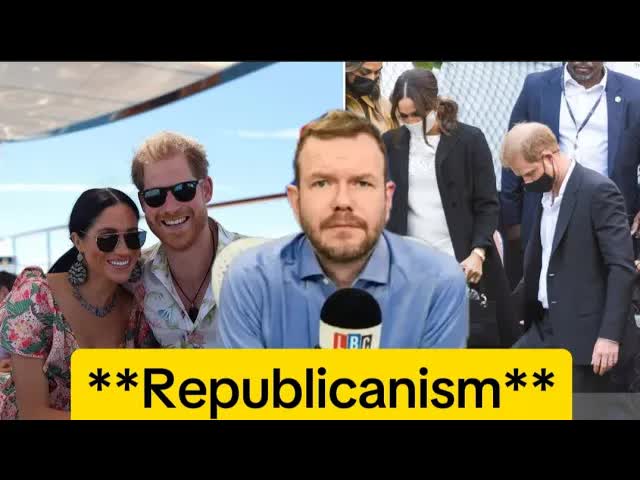In the midst of an ongoing mental health crisis and rising inequality, a growing number of voices are questioning the role of the British monarchy.
Many argue that the royal family serves as a symbol of entrenched social divisions, perpetuating a system that many believe is outdated and unjust.
While some may view the monarchy as a comforting tradition, others see it as a stark reminder of the inequalities that plague society today.
The sentiment is clear: the royals, with their opulent lifestyles, seem disconnected from the everyday struggles of ordinary citizens.
As people grapple with soaring energy bills and the rising cost of living, the lavish existence of the monarchy stands in stark contrast.
It’s not that anyone expects the royals to live like everyone else, but a little empathy and solidarity during tough times could go a long way.
When public services are being slashed and communities face financial strain, the monarchy’s extravagant lifestyle can feel out of touch.
What kind of values does this promote?
Should we continue to uphold an institution where a select few enjoy unimaginable luxury while the rest of the population fights to make ends meet?
Perhaps it’s time to entertain the idea of an elected head of state, one who embodies the democratic principles that Britain prides itself on.
The monarchy, by its very nature, is undemocratic.
It suggests that one’s worth is determined by birthright rather than merit.
While the current royals may be well-liked, their positions are not earned through the will of the people.
This raises a critical question: how can a modern democracy justify an unelected head of state?
The notion that some individuals are inherently superior because of their lineage is becoming increasingly untenable.
Moreover, let’s delve into the financial aspect of the monarchy.
The sovereign grant, which funds the royal family, is a significant sum drawn from taxpayers’ pockets.
Advocates claim that this investment fosters tourism and national pride, yet the costs associated with security and maintenance are substantial.
Wouldn’t it be more beneficial to allocate those resources toward public services that directly impact the lives of citizens?
Transparency is another issue that looms large over the monarchy.
The royal family often operates behind a curtain of secrecy, leaving the public in the dark about how their money is spent.
While privacy is essential, when you’re funded by the taxpayer, there’s a compelling argument for openness.
A lack of accountability only breeds suspicion and allows rumors to flourish, making it challenging to hold the monarchy responsible for its actions.
The monarchy, whether intentionally or not, reinforces a class system that many find increasingly difficult to accept.
It stands in stark contrast to the idea of a meritocracy, where success is supposed to be based on hard work rather than inherited privilege.
In a society grappling with inequality, the monarchy can feel tone-deaf, perpetuating a narrative that some are simply born to rule.
Historically, monarchs wielded real power, but today, their role is largely ceremonial.
The queen has become more of a national figurehead than a ruler with political authority.
This raises the question: do we really need a monarchy for symbolic representation?
There are surely less costly and more contemporary ways to embody national unity without the baggage of hereditary privilege.
As for the Commonwealth, the royal family’s position as its head is fraught with complications.
While some view it as a force for good, others see it as a lingering reminder of colonialism.
The monarchy’s involvement in the Commonwealth underscores the complexities of Britain’s imperial past, a history that many would prefer to move beyond.
Despite attempts to modernize, the monarchy seems stuck in an archaic framework.
Social media engagements and photo opportunities with younger royals don’t change the fundamental issues at play.
The challenge remains: how do you convince a populace that a system based on privilege is still relevant in an age striving for equality?
The question of whether the monarchy is worth its financial and societal costs is increasingly debated.
While it may be seen as a cornerstone of British identity, the opportunity cost of maintaining such an institution is significant.
Imagine redirecting those funds toward initiatives that promote education, healthcare, or environmental sustainability—now that’s a vision worth pursuing.
Support for the monarchy is waning, particularly among younger generations disillusioned by scandals and the absurdity of royal life.
The idea of a republic, once considered radical, is gaining momentum.
As societal values shift, the monarchy must reckon with the reality that its relevance is under scrutiny.
Britain stands at a crossroads.
The monarchy has been a fixture of British life for centuries, but just because something has always existed doesn’t mean it should continue unchallenged.
As a nation that prides itself on democracy and fairness, it’s time for a serious conversation about the future of the monarchy.
Do we cling to outdated traditions, or do we embrace a future where equality and meritocracy reign?
The choice is ours to make.
